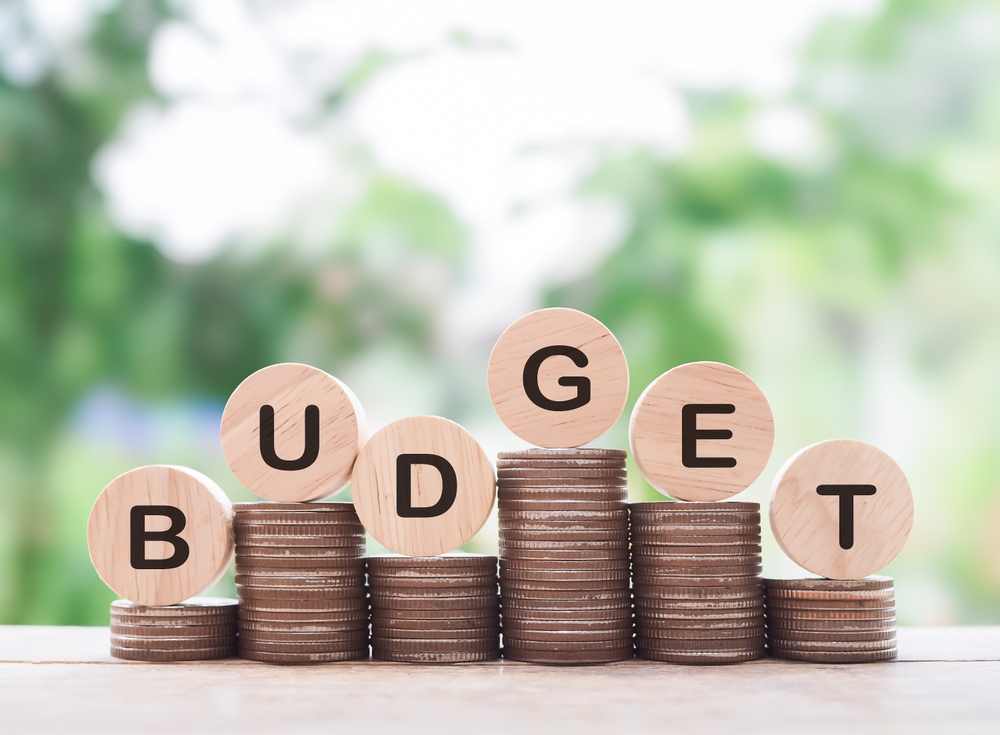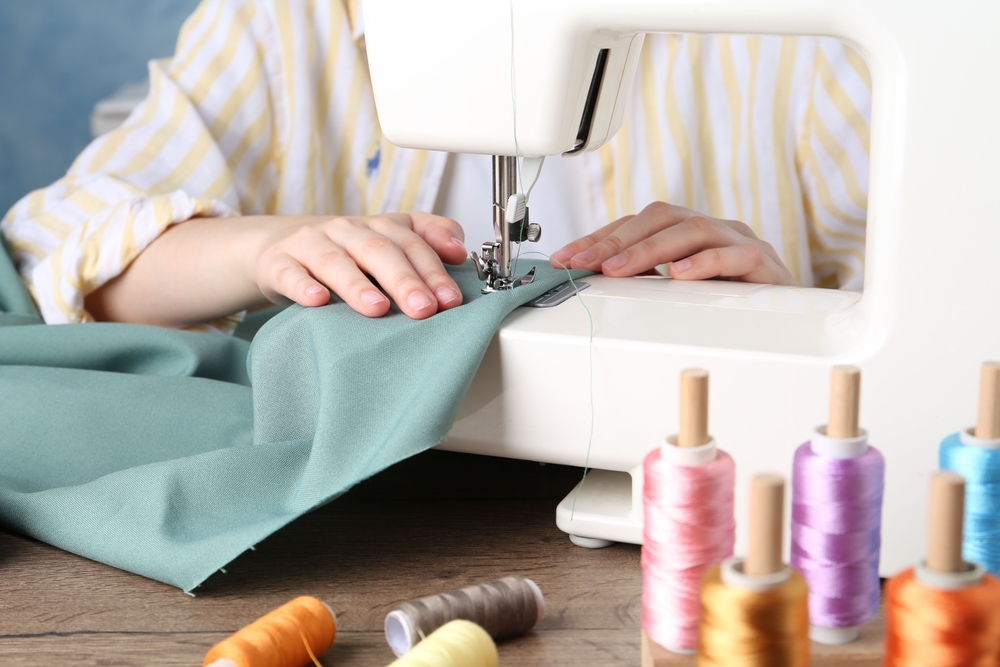It’s fascinating how those with tighter budgets have mastered the art of being financially savvy. While they might not always have the excess cash to flaunt a lavish lifestyle, their resourcefulness proves they are adept at managing money in ways that many others overlook. Here, we explore the 13 savvy strategies that people with limited financial means employ, showcasing their ability to navigate the monetary landscape with intelligence and dexterity.
1. They Budget Like Bosses

Broke people often excel at meticulous budgeting because their financial survival depends on it. They track every dollar with precision, knowing exactly where each penny goes. This level of vigilance helps them identify wasteful spending and make necessary adjustments to stay afloat. Their budgeting skills are not just about cutting costs but about reallocating resources to meet essential needs.
Research from the Consumer Financial Protection Bureau highlights that people who actively track their spending are more likely to achieve financial goals. By maintaining a detailed budget, they build a roadmap to financial stability. This practice isn’t just about constraint; it’s about control and clarity. With each budgeting cycle, they refine their awareness of financial priorities and opportunities.
2. They Only Buy What They Need

Minimalism isn’t just a lifestyle choice for broke people—it’s a financial strategy. By sticking to the essentials, they save money, reduce waste, and prioritize what’s truly important. This approach helps them avoid consumer traps and reduces the temptation to splurge on unnecessary items. They understand that value isn’t always tied to material possessions.
Living minimally allows them to invest their limited resources in experiences or savings rather than things. This not only leads to financial health but also emotional well-being. They discover that less clutter and fewer financial obligations lead to a simpler, more focused life. Minimalism becomes a means of empowerment, showing how much can be accomplished with what might seem like little.
3. They Take a Creative Problem Solving Approach

In financial tight spots, creativity becomes an invaluable currency. People with limited funds often turn to unconventional solutions to stretch their budgets. From DIY projects to bartering services, they find ways to achieve their goals without breaking the bank. This inventive approach not only saves money but also fosters resilience and adaptability.
According to a study published in the Journal of Consumer Research, financial constraints can enhance creativity and problem-solving skills. When resources are scarce, broke people learn to approach challenges from new angles. This mindset allows them to thrive in situations where others might feel trapped. By embracing creativity, they turn financial limitations into opportunities for innovation.
4. They’ve Developed Strong Negotiation Skills

Broke people often develop strong negotiation skills out of necessity. Whether it’s haggling at a flea market or negotiating bills, they become adept at advocating for themselves. These skills help them secure better deals and stretch their limited funds further. They understand that every dollar saved in negotiation is a dollar that can be used elsewhere.
Effective negotiation is about confidence and strategy, not just the art of persuasion. By learning how to negotiate, broke people gain financial advantages that others might overlook. They become experts at finding common ground and identifying mutually beneficial solutions. This skill not only benefits their wallets but also enhances their communication abilities in broader contexts.
5. They Cook at Home Mostly

For those on a tight budget, dining out frequently is a luxury, leading them to become culinary experts in their own kitchens. By cooking at home, they save money, control nutritional intake, and often enjoy the therapeutic process of preparing meals. They learn to make the most of ingredients, reducing waste and maximizing flavor. Home-cooked meals become a source of pride and financial relief.
A study by the Harvard School of Public Health found that people who frequently cook meals at home consume fewer calories and spend less money on food. This aligns with the broke lifestyle, where cooking at home isn’t just a necessity but a strategic choice. By prioritizing homemade meals, they cultivate healthier eating habits and financial savings. Their kitchens become hubs of creativity and sustenance.
6. They Prioritize Saving Over Spending

Despite limited funds, broke people understand the importance of saving. They might not save much, but they consistently set aside a portion of their income for emergencies or future goals. This habit demonstrates discipline and foresight, ensuring they have a financial cushion when unexpected expenses arise. Saving becomes an act of self-preservation and empowerment.
Even small savings add up over time, providing a sense of security and progress. By prioritizing savings, broke people create a buffer against financial instability. This practice requires sacrifices and tough choices, but the peace of mind it offers is invaluable. They learn that every bit saved is a step towards financial independence.
7. They Use Free Community Resources

People with limited financial means often turn to community resources to augment their budgets. From food banks to clothing swaps, these resources provide essential support while fostering a sense of community. By utilizing these services, they alleviate some of their financial burdens and connect with others facing similar challenges. Community resources become a lifeline and a means of social support.
The Urban Institute reports that community-based services can significantly improve financial and personal well-being. By engaging with these resources, broke people gain access to essentials while contributing to a network of mutual aid. These experiences highlight the power of community and collective resilience. They learn that financial wellness isn’t just an individual pursuit but a shared journey.
8. They Recycle and Upcycle

Recycling and upcycling are not just eco-friendly habits but clever financial strategies for those on a budget. By repurposing materials, broke people save money, reduce waste, and unleash their creativity. They transform old items into new treasures, demonstrating that beauty and utility can emerge from the discarded. This approach to consumption is both sustainable and financially savvy.
The practice of recycling and upcycling encourages resourcefulness and innovation. It shifts the focus from consuming new products to maximizing what’s already available. Broke people learn to see potential in the overlooked, turning trash into treasure. This mindset fosters a deeper appreciation for sustainability and financial ingenuity.
9. They Are Disciplined Spenders

For broke people, discerning between needs and wants is crucial to financial survival. They learn to prioritize essentials like housing, food, and healthcare over discretionary spending. This disciplined approach ensures that their limited resources are directed towards what truly matters. By focusing on needs, they build a foundation for financial stability.
This practice requires self-awareness and restraint, distinguishing between fleeting desires and genuine necessities. By honing this skill, broke people develop a clear understanding of their financial priorities. This clarity empowers them to make informed decisions that align with their goals. They demonstrate that true financial intelligence lies in knowing what to value.
10. They Walk or Take Public Transportation

Public transportation becomes a practical choice for broke people looking to save on commuting costs. By opting for buses or trains, they avoid the expenses associated with car ownership. This choice not only saves money but also reduces their carbon footprint. Public transportation becomes a means of financial and environmental sustainability.
Using public transit requires planning and adaptability, skills that translate into other areas of life. Broke people learn to navigate schedules and routes efficiently, honing their time management abilities. This practice becomes more than just a financial necessity; it’s a lesson in resourcefulness. They demonstrate that convenience doesn’t always equate to cost-effectiveness.
11. They Lean Into The Sharing Economy

For those with limited finances, the sharing economy offers access to resources without the burden of ownership. By participating in services like car-sharing or peer-to-peer rentals, they enjoy the benefits of goods without the associated costs. This approach aligns with their financial goals, allowing them to enjoy experiences they might otherwise miss. The sharing economy becomes a tool for financial inclusion and flexibility.
Engaging in the sharing economy fosters a sense of community and collaboration. Broke people learn to leverage these services to enhance their quality of life without overspending. This participation encourages sustainable consumption and a shift away from materialism. They demonstrate that financial constraints can lead to innovative solutions and new opportunities.
12. They Get Clued Up About Money

Broke people often prioritize financial literacy to better understand and manage their money. They seek out resources and education to improve their financial knowledge. By doing so, they gain the tools to make informed decisions and avoid common financial pitfalls. Financial literacy becomes a cornerstone of their journey towards stability and growth.
Investing in financial education empowers them to navigate complex financial landscapes with confidence. Broke people learn to decipher jargon, analyze options, and plan for the future. This knowledge builds a foundation for long-term financial success. They prove that financial literacy is a powerful equalizer in the pursuit of economic security.
13. They Express Gratitude For What They Have

In the midst of financial struggle, broke people often embrace gratitude as a means of finding contentment. By focusing on what they have rather than what they lack, they cultivate a positive mindset. This perspective helps them appreciate the small joys and triumphs in life. Gratitude becomes a source of strength and resilience.
Practicing gratitude fosters emotional well-being, reducing the stress associated with financial challenges. Broke people learn to see abundance in simplicity and value experiences over material wealth. This outlook enriches their lives, proving that happiness isn’t solely tied to financial success. They remind us that gratitude is a powerful antidote to scarcity.
This article is for informational purposes only and should not be construed as financial advice. Consult a financial professional before making investment or other financial decisions. The author and publisher make no warranties of any kind.








